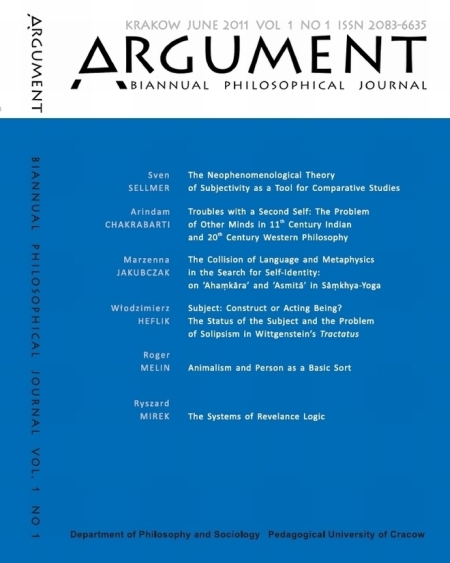Subject: Construct or Acting Being? The Status of the Subject and the Problem of Solipsism in Wittgenstein’s Tractatus
Keywords:
Ludwig Wittgenstein, subject, subjectivity, self-knowledge, transcendentalism, solipsism, mysticism, philosophical I, will, Arthur Schopenhauer, double aspect of the subjectAbstract
In his Tractatus and Notebooks 1914-1916, Wittgenstein develops some themes concerning the nature of the subject, transcendentalism, solipsism and mysticism. Though Wittgenstein rejects a naive, psychological understanding of the subject, he preserves the idea of the metaphysical subject, so-called “philosophical I”. The present investigations exhibit two ways of grasping the subject: (1) subject as a boundary (of the world); (2) subject (I) as the world. The author of the paper aims to analyze different methods of conceiving the subject, both logical and transcendental. Then he discusses the naturalistic or reductionist consequences of solipsism which were derived by Wittgenstein. Moreover, he refers to the concept of ‘subject of will’ introduced in the Tractatus. Finally, the author puts a question whether the metaphysical subject is a boundary of the world identified with the subject of will. While trying to answer this question one can point to the essential difficulties of Wittgenstein’s standpoint. These difficulties become especially evident if we examine Wittgenstein’s statements concerning mysticism. The category of subject seems to gain a new dimension when reconsidered in this context. In the conclusion, the author offers an interpretation inspired by Schopenhauer’s conception of the double aspect of the subject that is to overstep these difficulties.


